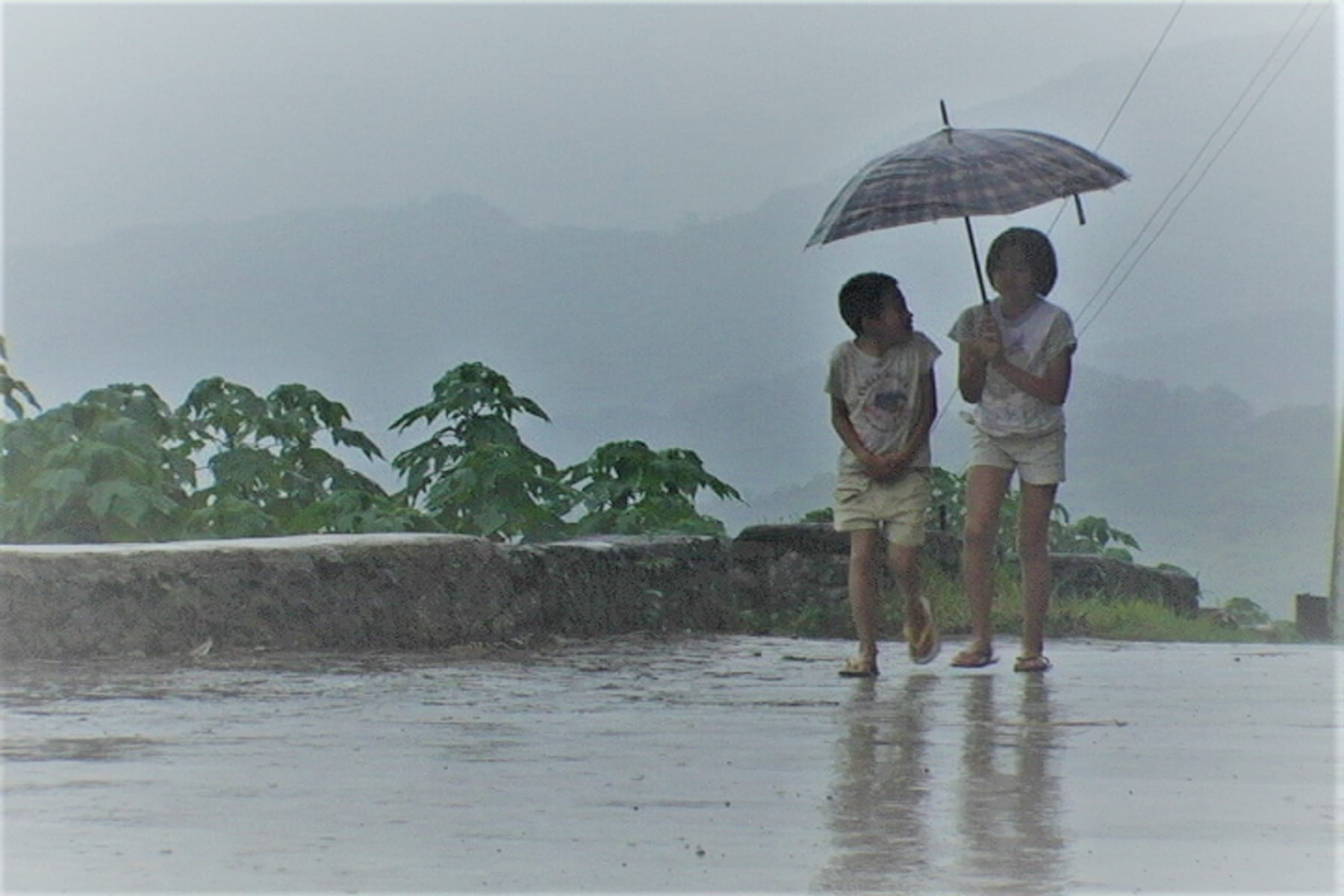2005 | 1hr 29m | Written and Directed by Mes de Guzman

Availability Window:
7pm, Apr 16 – 7pm, Apr 30
Synposis
A brother and sister trek over mountain, ravine, and river to and from school. After coming back from school, they take care of the pigs, feed their ill grandfather, and do their homework. When news arrives that the mine where their older brothers have been working to support them has collapsed, their arduous but predictable routine is thrown into turmoil.
Awards include: San Sebastian Int’l Filmfest: Best New Director – Special Mention; Gawad Urian: Best Direction, Supporting Actor, Production Design; Star Awards: Movie Child Performer of the Year; Golden Screen Awards: Best Motion Picture (Independent), Sound
How to Watch
Click on the following link to access the film’s Eventive Page: The Road to Kalimugtong. Once you arrive on the film’s Eventive page, click either “Pre-order” or “Buy” (don’t worry, you will be able to screen each film free of charge) and you will be prompted to enter an unlock code, which is (case sensitive):
Siglos*de*Anito*137a*z
If this is your first time using Eventive, you will be asked to register and create an account before you can proceed further. Once you are registered and the “purchase” for the film is complete, you will receive an email confirmation with a direct link to watch the film.
Please note that once you start a film, you will have a 48-hour window within which to watch it in its entirety.
Curator’s Commentary
The Road to Kalimugtong/Ang Daan Patungong Kalimugtong is the first full-length feature of writer/director Mes de Guzman. Having followed it up in an award-laden filmography with 10 other full-length films to date, de Guzman says, “Kalimugtong remains the closest to my heart and soul; it was here that I felt to the bones there is no obstacle if you really desire to do cinema.” *
The film takes place in an area in the remote Benguet mountains, where the only possible mode of transportation is by foot. The story revolves around a small boy (Potpot, who also narrates the film) and his elder sister Jinky who washes their only school uniforms each day after the long trek back home, as their family couldn’t afford more uniforms. The remoteness and all-pervasive poverty can’t be further away from the freneticism and consumerism of the world around NYU. Yet the film gently and constantly reaches depths where such outward differences vanish like the fog that’s often seen enshrouding the mountains.
De Guzman’s budget for Kalimugtong was an almost nonexistent 20,000 pesos (about $400). He worked with a Panasonic DVX100b camcorder, borrowed for a week, and a cast of local non-actors. The crew consisted of four people, with the assistant director doubling as cook, and the cinematographer and soundmen both newbies.
“My only plan was to do a story about the kids I encountered when I was in elementary school in Nueva Vizcaya, with Igorot, Ifugao, mountain kids who had to walk interminably to get to school. I always wondered why those kids were always dirty, especially their feet and sandals. In making the film, I had no pretension or ambition about gaining awards or attention from critics. I only wanted to fulfill part of my bucket list… to make a film while I was alive.” It was therefore a surprise when the film went far and wide, winning major awards in the Philippines and Europe, and over fifteen years after its premiere, still being invited to local and international festivals and retrospectives.
Kalimugtong remains a prime example of how soul and resourcefulness can trump technical impediments and scant budget, an attribute that has made contemporary Philippine indie filmmaking an arresting presence on the world’s arthouse stages and an inspiration in a world where just about anyone can shoot video with a cheap cell phone. The film has a modernistic economy and resonance in the way it would often suggest an entire episode through a single, glancing shot. It’s remarkably free of false sentimentality and movie manipulativeness. It gathers a plethora of universal epiphanies found in the most unexpected moments and places, including a pig pen.
For the Visions/Panawin presentation, New-York based filmmaker Craig Nisperos has expertly remastered Kalimugtong, making sure that the rendering remains faithful to the original version, including the foggy atmosphere of its world. (It retains the original wide black frame around the central image.) Panawin is proud to present the world premiere of the Remastered Kalimugtong.
— Gil Quito
* De Guzman quotes are excerpted from a letter the director wrote to this writer on March 7, 2022. The excerpts have been translated from Tagalog.
About the Director
Ramon “Mes” de Guzman (b. 1971) commenced his artistic journey as a writer in the 1990s when he won four Palanca awards (the “Philippine Pulitzers”) for entries in the teleplay division. His 2004 novel, Rancho Dyanggo, received the Grand Prize from the NCCA (National Commission for Culture and the Arts).
He first tried his hand at film production with the short Batang Trapo (2002), which won the Grand Prize at the Marrakech international film festival. He has written and directed 10 full-length feature films after Kalimugtong, including the “Earth” trilogy, Diablo, The Story of Mabuti, and Sitio, that have garnered several major awards in the Philippines and screened at festivals and retrospectives in Spain, the Netherlands, France, Australia, and the United States.
He’s currently turning his collection of short stories Barriotic Punk (published 2002) into film. When not shooting films, he lives in a remote barrio in the Nueva Vizcaya mountain region that neighbors Kalimugtong’s Benguet mountains.
Watch the Trailer